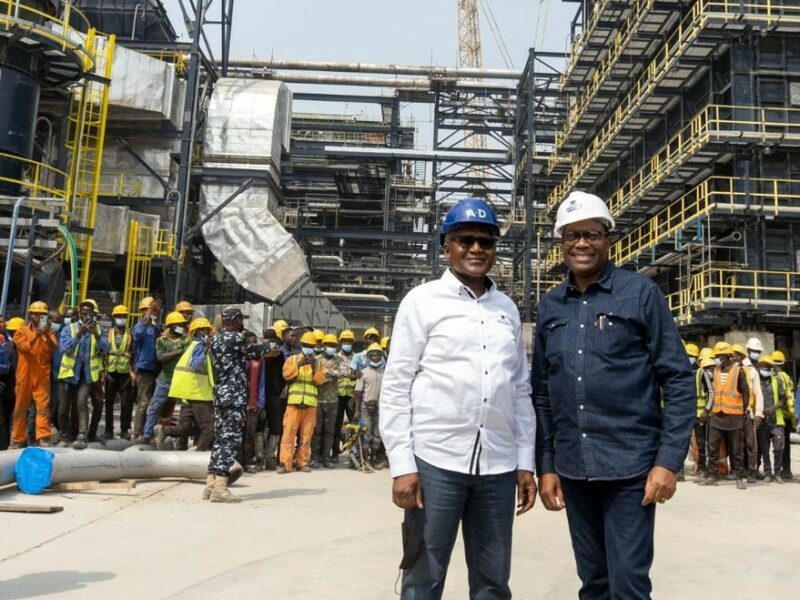Amnesty International, others decry planned execution of inmates
ABUJA—A global human rights body, Amnesty International, the National Human Rights Commission, the Legal Aids Council and the Legal Resources Consortium yesterday in Abuja protested the plans by the 36 state governor in the country to begin execution of all condemned inmates resident in various prison formations in the country.
The governors had recently announced that they would start signing execution warrants to execute prisoners sentenced to death as a way of decongesting prisons in their states.
The governors’ decision was predicated on the advice by the National Council of States on the issue.
But the human rights society yesterday dismissed as a lie that the refusal by the state governors to sign death warrant was responsible for prison congestion in the country.
They took turn yesterday in Abuja to identify the soaring number of awaiting trial inmates in the Nigerian prison formations as the cause of prison decongestion.
They used statistics to establish their claim.
For instance, all of them said that of the over 45,000 prison inmates in the country, they said only 822 were condemned prisoners and that executing them would not decongest the prison in concrete terms.
Mr Wale Fapohunda spoke for the Legal Resources Consortium yesterday, the Director General of Legal Aids Council and the Executive Secretary of the National Human Rights Commission spoke for their agencies.
Similarly, the Amnesty International, Human Rights Institute (NBAHRI) and other Nigerian human rights non-governmental organizations yesterday said that they were deeply worried over reports of a decision by the Nigerian government to execute inmates to ease prison congestion.
The global human rights body said that “instead of executing prisoners, the Nigerian authorities must address underlying problems in the criminal justice system.â€
In a statement issued yesterday on the matter, Amnesty International said:
“Many death row prisoners may be innocent, as Nigeria’s justice system is riddled with flaws and is unable to guarantee fair trials.
“According to reports, the decision to execute death row inmates to ease prison congestion was taken at a meeting of the National Economic Council (NEC) on Tuesday 15 June 2010. The meeting was chaired by the Vice President of Nigeria and attended by Nigeria’s 36 state governors.
“The meeting asked the Nigerian state governors to sign execution warrants as a means of decongesting the country’s prisons. This is the second time in two months that Nigeria’s state governors have considered the execution of inmates to ease prison congestion.
“In April 2010, a similar announcement was made following a meeting of the Council of States, a meeting of the 36 state governors, chaired by the President of Nigeria.
“The resumption of executions does not offer a fair and effective solution to the problem of overcrowding.
“According to Nigeria’s Minister of Interior, the total prison population is 46,000, of which some 30,000 are awaiting trial. Few inmates can afford a lawyer and the government funded Legal Aid Council only has around 100 lawyers. Prisons will remain overcrowded until these underlying problems are addressed.
“There are approximately 870 death row inmates currently in Nigeria’s prisons, including women and juveniles. Under international human rights law, the death penalty must not be imposed for crimes committed by people below 18 years of age and people charged with capital crimes are entitled to the strictest observance of all fair trial guarantees.
However, weaknesses in the Nigerian criminal justice system means that hundreds of those awaiting execution on Nigeria’s death rows did not have a fair trial and may therefore be innocent.
“Many inmates have been sentenced to death after blatantly unfair trials. Trials can take more than 10 years to conclude. Appeals in some death row cases have been pending for a decade. Some never happen because case files have been lost.
“Two expert groups set up by former president Olusegun Obasanjo – the National Study Group on Death Penalty (2004) and the Presidential Commission on Reform of the Administration of Justice (2007) – recommended a moratorium on executions because the criminal justice system can not guarantee a fair trial.
Recall that in November 2008, the African Commission on Human and Peoples’ Rights at its 44th Ordinary Session in Abuja, Nigeria, adopted a resolution calling on state parties to the African Charter on Human and Peoples’ Rights to observe a moratorium on the death penalty.
In December 2007 and 2008, the UN General Assembly also adopted two resolutions on the use of the death penalty calling upon states that still maintain the death penalty to progressively restrict the use of the death penalty; reduce the number of offences for which it may be imposed and establish a moratorium on executions with a view to abolishing the death penalty.
While Nigeria did not adopt an official moratorium on executions, the Federal Minister of Foreign Affairs stated in February 2009 at the 4th Session of the United Nations Universal Periodic Review (UPR) that Nigeria has a “self imposed moratoriumâ€
Any step by the Nigerian government, state or federal, to resume executing will be contrary to commitments made by Nigeria at international level.
By Ise-Oluwa Ige, Nigeria
Stay with Sierra Express Media, for your trusted place in news!
© 2010, https:. All rights reserved.






